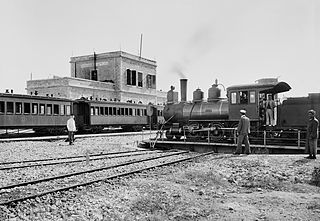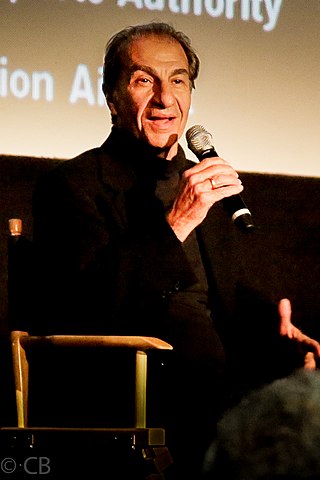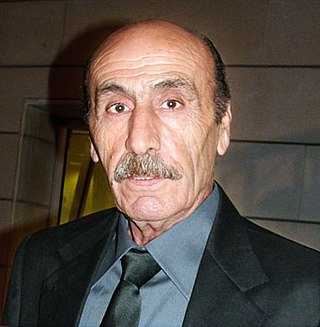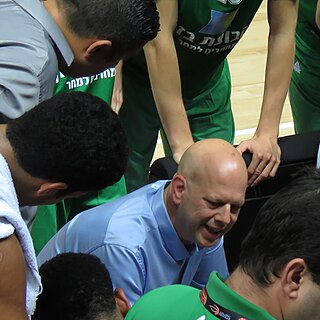
Beersheba, officially Be'er-Sheva, is the largest city in the Negev desert of southern Israel. Often referred to as the "Capital of the Negev", it is the centre of the fourth-most populous metropolitan area in Israel, the eighth-most populous Israeli city with a population of 214,162, and the second-largest city in area, with a total area of 117,500 dunams.

Orna Banai is an Israeli actress, comedian, entertainer and past member of the Tel Aviv-Yafo city Council.

Kokhav Nolad was an Israeli reality television show searching for talented new vocalists, based on the British Pop Idol model. Since its debut on Israeli Channel 2 in 2003, Kokhav Nolad has become popular and turned out many new musical stars. The show was hosted by Zvika Hadar.

Itzik Zohar is an Israeli former international footballer and television sports personality. Born in Bat Yam, Israel to a family of North African extraction, he holds the distinction of scoring the first two goals for Israel in its first World Cup qualifier in the UEFA confederation on October 28, 1992. He is widely regarded as having been one of the best free kick takers in Israeli football.

The Jaffa–Jerusalem railway is a railway that connected Jaffa and Jerusalem. The line was built in the Mutasarrifate of Jerusalem by the French company Société du Chemin de Fer Ottoman de Jaffa à Jérusalem et Prolongements and inaugurated in 1892. The project was headed by Joseph Navon, an Ottoman Jewish entrepreneur from Jerusalem, after previous attempts by the British-Jewish philanthropist Sir Moses Montefiore failed. While the first rail track in the Middle East was laid elsewhere, the line is considered to be the first Middle Eastern railway.

Dorit Bar Or is an Israeli actress and fashion designer.

Zvika Hadar is an Israeli actor, comedian and television host.

Sasson Gabai is an Israeli actor. He is the winner of an Ophir Award, Asia Pacific Screen Award (nominated), European Film Awards and Jerusalem Film Festival in 2007 as Best Actor in the highly acclaimed Israeli film The Band's Visit.

Yosef Shiloach was an Israeli actor.
Krovim Krovim is an Israeli television sitcom created by Ephraim Sidon and B. Michael. The series which originally aired on the Israeli Educational Television channel in the years 1983 - 1986 is known as the first Israeli sitcom.

Micah Lewensohn (Hebrew: מיכה לבינסון, was an Israeli theater director and actor.
Jacqueline Shohet Kahanoff was an Egyptian-born Israeli novelist, essayist and journalist. Kahanoff wrote in English, although she is best known for a cycle of essays, “A Generation of Levantines,” that was published in Israel in Hebrew translation in 1959. These pieces lay out her notion of “Levantinism,” a social model of coexistence drawn from her childhood experiences in Egyptian cosmopolitan society in the interwar period.
Jacob Gil is an Israeli architect and town planner
HaAh HaGadol 5 is the fifth season of the Israeli version of the reality show Big Brother. The season began broadcasting on 5 May 2013, and ended on 27 August 2013. Eighteen housemates entered the house during the premiere, and another five housemates joined after sixty-six days. It is the first season to be broadcast in 16:9 widescreen format. It was also the longest-running Israeli season at the time, lasting 115 days, until it was surpassed by season 9 which ran for 120 days.

Ishai Golan is an Israeli film and television actor. In 2010, he won the Israeli Television Academy award for Best Actor for playing Uri Zach in Prisoners of War (Hatufim).
Joav BarEl, (1933–1977) was an Israeli artist, critic, and lecturer.

Rami Hadar is an Israeli basketball coach for the Peja of the Kosovo Basketball Superleague.

Avner Sher is an Israeli architect and artist.

Hadar Gad is an Israeli artist.













